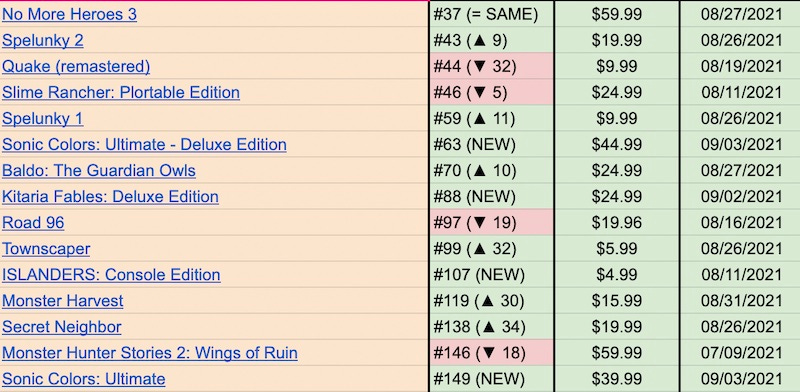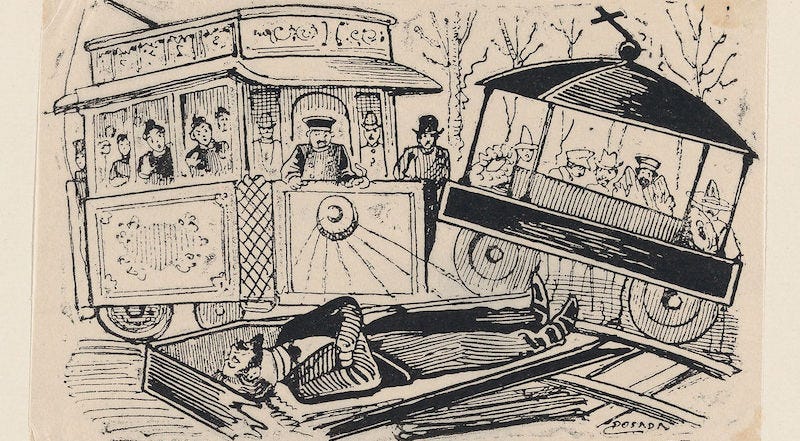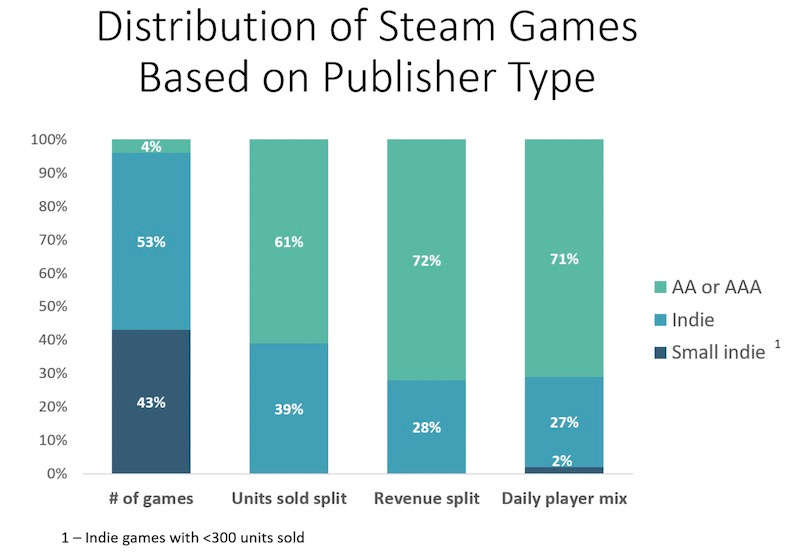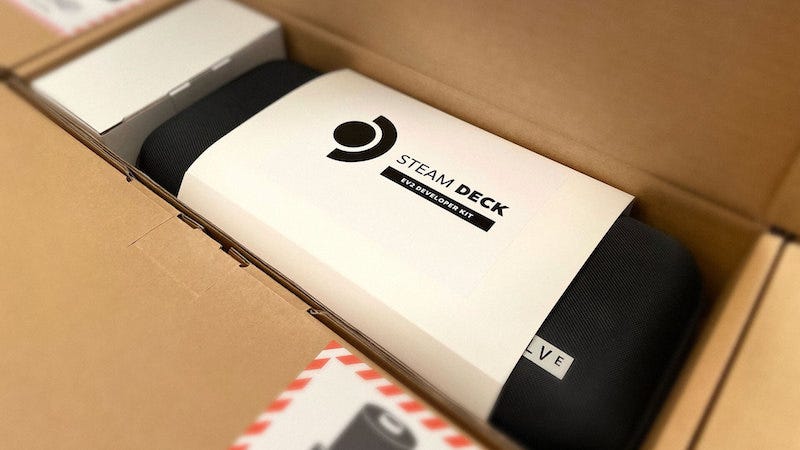'It's OK' - the meh-ening of indie console game sales
Publikováno: 7.9.2021
Welcome... to the world of tomorrow.
[The GameDiscoverCo game discovery newsletter is written by ‘how people find your game’ expert & GameDiscoverCo founder Simon Carless, and is a regular look at how people discover and buy video games in the 2020s.]
Welcome back to the latest GameDiscoverCo newsletter. We’re going Tuesday & Thursday (free) and Friday (paid) this week for our newsletters, btw, because it was a U.S. holiday yesterday.
In this one - in addition to the extra day of ‘game discovery news in general’ that’s built up - we start out with a look at the less-reportable console sales end of the spectrum. And we’ll be curious to hear if you agree with our general impressions.
[Kudos to new members of our GameDiscoverCo Plus paid subscription - only $12 a month if you sign up for a year, and includes an info-filled Discord, a data-exportable Steam Hype back-end for ranking/comparing unreleased games, our new eBook, & lots more - join them!]
Why so few indies jazzed re: console game sales?
Something that we’ve always found it tricky to report on - trend-wise - for GameDiscoverCo is sales on the big three game console families (Xbox, PlayStation, Switch). You’ll tend to see ‘milestone’ sales numbers, but that’s about it. And console manufacturers discourage transparency on sales.
But here’s a trend we feel confident enough about to highlight. We no longer hear indie game devs - or even decent-sized publishers - say they’re excited about their console game unit sales. Even when we talk to people who had a decent-sized hit on PC, and then ported to console, we tend to hear ‘oh, we made back our porting costs, and it’s nice bonus money’.
It’s rarely much better than that. (And some are surprised about how swiftly the launch ‘tails off’ into extremely incremental sales.) There’s actually a hint towards poor long console tail in this recent interview with NIS’ president, where he notes: “We're noticing that rather than the dramatic initial spurt we see on consoles, PC sales are steadier… From a business standpoint, we are very thankful for such steady sales numbers.”
Anyhow, let’s be a tiny bit more specific on numbers, and then try to puzzle out trends causing this. Below is yesterday’s ranking of Nintendo Switch’s third-party ‘recent’ paid games in the U.S. eShop, which we capture twice weekly & analyze for GameDiscoverCo Plus members:
This is just one regional view of Switch (this ranking is 14-day units for games in last 3 months, chart #s are tracking download numbers including F2P.) And it’s interesting to see which fragment of the 30 to 45 Switch games released weekly (!) make it into these rarified heights. So here’s what we’ll say:
If you make it into the Top 200 of all Switch downloads on launch, we estimate you’re selling at least 10-20,000 copies of your game in the initial ‘rush’, which tends to tail off to <50 copies per day, a month or so after launch (and from there, sometimes down to single digits.)
Getting into the Top 100, you might start hitting 25,000+ copies before it starts slowing down. But only a small minority of titles are hitting 50,000+ units sold in the first push, before they slow down and you have to start discounting semi-aggressively.
Many ‘average’ Switch launches that didn’t make these charts are selling high hundreds (ugh) or low thousands of copies (ugh?) before they run out of juice. This is due to multiple reasons we’ll discuss in a second.
Just to be clear - we’re not Nintendo-bashing here. We see similar trends on both Xbox (where there’s proven data in the form of Car Mechanic Simulator selling 10% of its PC launch in the same timeframe), and on PlayStation, which has historically been slow-ish on sales to indies, especially compared to Switch in its heyday. But what’s up? Some ideas:
‘No backwards compatibility’ isn’t a thing - having to build up a catalog of games for your new console from scratch, because you couldn’t play your old games? A massive revenue driver! If you had any Switch game out in the 2018 timeframe, you could sell 1-2,000 copies per month at full price, just by being on the store, partly due to lots of hardware sales and a lack of titles to buy. The trend, clearly, is away from this, looking at PS4/PS5 and especially Xbox.
Game Pass-ification of platforms - when you have a lot of games to choose from - increasingly in the future via a subscription - then you’re less likely to buy new games. This is just because of the amount of dashboard space and publicity devoted to the games featured in subscription services on some platforms. (Now, you may spend more money in IAP/DLC on games that have upsell and a base version in the subscription package, but that’s a different thing.)
GaaS-ification of top games on platforms - on platforms like Xbox and PlayStation, top titles like Destiny 2 or GTA Online are designed to lock you in and keep you coming back to play again and again. There’s often additional monetization that pays for that extra dev cost. This further decreases the oxygen to fuel brand-new premium titles - not least because these games are good.
Discovery issues on console stores - the Switch and PlayStation stores in particular are quite poor for personalization and recommendations. And the Xbox store is pretty good (though not as good as Steam), but in general is heavily playing up Game Pass games, as you would expect with the company’s business model shift. Still good for you if your title is in Game Pass, of course.
Less ease/community around buying games - this is just a natural downside of consoles. It’s a single click from watching a YouTube video of a game on your PC or mobile device to going to its Steam page and then wishlisting or buying it, vs. ‘boot up the Switch, search’, etc. It’s also a bit more difficult to keep updating players on what’s going on and make them feel like part of a community on the console itself. (UIs can be very clunky.)
Supply/demand issues in general - as we’ve established, there’s a lot more games coming out on these consoles, especially Switch, and none of the old games are getting delisted. (Just put on sale more often!) For Xbox and PlayStation, it’s more difficult to discount. But the discovery issues on old games are still real. (A lot of non-AAA games that sell well on PlayStation/Xbox do so because people see YouTube videos/streams and then search specifically for them, we think.)
So… what’s the point of this slightly abstract trends rant? Because everyone has different budgets, there’s no single conclusion. (For some, selling 20,000 copies at full price on Switch is a big deal! For others, it’s a rounding error in an abject failure.)
I guess what I’d take away is: everyone making premium (paid, one-off) games should pay more attention to PC game success trends. Steam seems to be the most vibrant global platform for that type of game right now. The era of ‘well, we messed up on PC, but our console versions saved us’ is disappearing for medium or high-budget games, especially since the Switch catalog got so big.
And rather than riding the ‘premium only’ revenue trolley straight down the tracks, unyieldingly into disaster (pictured, above), we should all be keeping a careful eye on:
ways you can fairly find extra monetization for games, if players love them and play them for a long time. (DLC, IAP, expansions, etc.)
ways to work with subscription services to better guarantee revenue in exchange for a one-off payment (the road to dominance of this model is slow, but it’s starting now.)
Neither of these is clean and easy. But we suspect both are the future for non-tiny indies or those who aren’t funded by publishers balancing risk across a portfolio - especially on console.
Indie games on Steam - what market share?
Lord knows that defining ‘indie’ is incredibly difficult. But interested to see that the smart folks at VGInsights have had a go with their latest article, which tries to classify all Steam publishers into AA/AAA publisher, indie or ‘small indie’ and rank by number of game, units/revenue, and player mix.
Some of this might not be surprising to you, for example: “Indie games account for over 95% of all game on Steam, but only about 40% of sales. Indie games are also cheaper, leading to only 28% of sales revenue coming from indies.” Nonetheless, that percentage is a pretty big chunk of money!
Another insight I thought was notable: “Even though indies sell 40% of the games on Steam, they only have 30% of the active user base. Large studios still entice people to play for longer (no wonder, given the large open world RPGs and popular MMOs where people spend 100s, if not 1,000s of hours.)”
Some folks in the GameDiscoverCo Plus Discord started poking around indie, AA and AAA definitions and found some data they didn’t agree with - which I’m not surprised about. (When I helped to run the Independent Games Festival, entry eligibility was a tickbox which asked ‘Are you indie?’, precisely because of these definitional difficulties.) But it’s a great starting point!
The game discovery news round-up..
So, after the mammoth point-fest that was the first part of this newsletter, let’s finish up with some specifics on things that have happened. You should probably care about some or all of these, GameDiscoverCo acolytes:
Presuming that most of you saw, but Valve has opened requests for the Steam Deck devkits. The company notes: “Dev kit supplies are limited, so we'll be reviewing requests via the online form on a case by case basis and will be shipping them out as quickly as possible.” So get form-filling, if you’d like to see what your games look like on handheld before the consumer hardware ships.
Did you know that on Twitch, “Creators can select the new "Software & Game Development" category for their streams focused on programming and all aspects of game development”? More info is here on the Twitch forums, and this has been a long-requested feature, ever since a ‘Game Development’ category was removed in July 2019. Not saying it’ll make a massive difference to your live-code or live-art stream viewership, but give it a try.
Just catching up on Apple iOS App Store Concessionfest 2021, the company has closed a Japan Fair Trade Commission investigation by “allow[ing] developers of ‘reader’ apps to include an in-app link to their website for users to set up or manage an account.” And for games… oh: “Reader apps provide previously purchased content or content subscriptions for digital magazines, newspapers, books, audio, music, and video.” So we’re still waiting for an upcoming tour stop for vidya games, I guess.
Some microlinks left-over from last week’s newsletter for space purposes: this postmortem of Aconite’s gorgeous mobile title Holovista admits: “despite a lot of gentle advice that premium mobile was going to be an incredibly difficult space, we still forged ahead with the hope that we could be the exception.. commercially, it was not”; China’s JD.com is stopping selling physical ‘gray market’ versions of a lot of console games due to gov pressure; this column on ‘the perfect publisher deck’ has some useful tips in it.
Sony got itself all twisted up around PlayStation 4 to PlayStation 5 upgrade costs for Horizon Forbidden West, and you can see the result at the top of this announce blog post: “Players who purchase Horizon Forbidden West on PlayStation 4 will be able to upgrade to the PlayStation 5 version for free.” There’ll be $10 upgrade costs for new Sony-published titles going forward, which is, uh, fine, I guess. But can’t help feeling this cross-compatibility stuff could be better handled in general - it shouldn’t be used as a tool to push players up the value chain.
Microlinks, Pt.2: there’s a discovertastic ‘28 indie games you should probably know about’ post from John Walker on Kotaku; we know physical versions of video games are shooting up in value, but so are secondhand pinball machines; how far is too far for aggressive IAP? Just re-read this 2018 Polygon article on Final Fantasy Brave Exvius - please think about who your whales are, and if they are OK with it?
My old colleagues at Game Developers Conference put up the talks for the virtual GDC 2021 - here’s all the videos you can check out gratis. And there’s some really good stuff in here - for example ‘Charm Your Communities’ from Victoria Tran and Derek Yu’s talk on the making of Spelunky 2, among many others.
Lars Doucet & friends expanded their work analyzing game engines used on Steam for this GameDeveloper.com article, and besides some great ‘engine change over time’ animated GIFs, it also adds a lot of fun data: “Backing up the perception that Unreal is favored for larger-scale projects, we can see that 25% of Unreal games launch at a price point of $29.99+, compared to only about 6% of Unity games.”
Microlinks, Pt. 3: here’s Japanese console game hardware 2020 vs. 2021 sales for the year so far, if you’d like to see Switch dominance; Death Trash revealed its Linux & Mac sales percentages - Mac 2.9%, and Linux 1.6 %; some recent drama about how PEGI ratings for gambling are working now - perhaps overblown, but look carefully, because you might get unexpectedly rated 18+ in edge cases, even for premium games.
Here’s a very useful Steam tip from Euro Truck Simulator producer Avi: “If you have a game with a coming soon page on Steam, don't keep the planned release date in the past. Steam doesn't show these apps in upcoming releases and in top wishlists. Contact Valve to change it to a date in the future for better visibility on the Steam store.” This means you, System Shock.
And some final microlinks (we got a lot!): Chris Z thinks IMGUR is decreasing in efficacy for hyping games, and brings stats to back it up; Google Play is bringing in per-region rating scores for Android games, which already exists for iOS; Playdate’s built-in browser based dev tool looks super cool, esp. cos all versions of Playdates can run user-made games (democratizing development!)
And that’s it for now. See you on Thursday for more fun and games, and thanks for supporting the newsletter.
[We’re GameDiscoverCo, a new agency based around one simple issue: how do players find, buy and enjoy your premium PC or console game? You can subscribe to GameDiscoverCo Plus to get access to exclusive newsletters, eBook and a Discord, plus interactive daily rankings of every unreleased Steam game, and more besides.]




